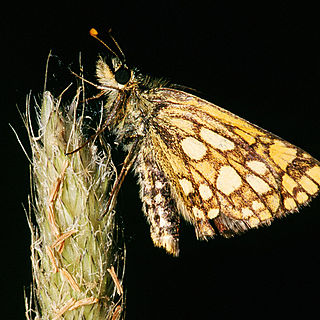
Carterocephalus is a Holarctic genus of skipperlings in the skipper family, Hesperiidae.

Acropolis is a monotypic butterfly genus from the subfamily Satyrinae in the family Nymphalidae. The one species in the genus, Acropolis thalia, is distributed in western subtropical China. The genus was erected by Francis Hemming in 1934 based on a species described by John Henry Leech in 1891.
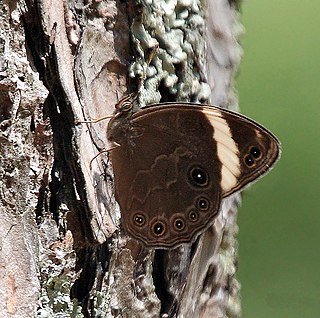
Lethe is a butterfly genus from the subfamily Satyrinae in the family Nymphalidae. The genus was erected by Jacob Hübner in 1819. It includes the treebrowns, woodbrowns, foresters and their relatives. The species in the genus Lethe occur in temperate-tropical southern and eastern Asia, up to Indonesia and in North America.

Euthalia is a genus of brush-footed butterflies. They are commonly called barons or dukes.
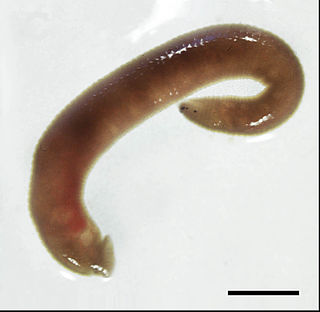
Xerobdellidae are a small family of jawed leeches in the order Arhynchobdellida. Xerobdellidae have three jaws and five pairs of eyes, the fourth and fifth being separated by one or two eyeless segments. The genera placed herein occur in Chile (Mesobdella), Europe (Xerobdella) and Diestecostoma is found in Central and northern South America. This peculiar distribution strongly suggests they are a relict Pangaean group, which had already been present by the start of the Jurassic 250 million years ago.

Paracymoriza is a genus of moths of the family Crambidae.
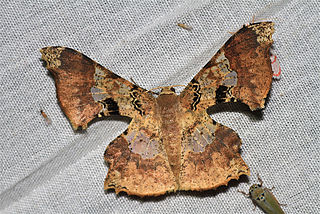
Krananda is a genus of moths in the family Geometridae described by Frederic Moore in 1868.
Microcalicha is a genus of moths in the family Geometridae first described by Sato in 1981.

Neope is a genus of butterflies of the family Nymphalidae found in Asia.

Loxerebia is a butterfly genus of the subfamily Satyrinae. The genus is confined to China, Mongolia, Burma, Thailand and Laos. Most species are endemic to China.

Hirudinidae is a family of leeches belonging to the order Arhynchobdellida.

The Interim Register of Marine and Nonmarine Genera (IRMNG) is a taxonomic database which attempts to cover published genus names for all domains of life, from 1758 in zoology up to the present, arranged in a single, internally consistent taxonomic hierarchy, for the benefit of Biodiversity Informatics initiatives plus general users of biodiversity (taxonomic) information. In addition to containing just over 500,000 published genus name instances as at May 2023, the database holds over 1.7 million species names, although this component of the data is not maintained in as current or complete state as the genus-level holdings. IRMNG can be queried online for access to the latest version of the dataset and is also made available as periodic snapshots or data dumps for import/upload into other systems as desired. The database was commenced in 2006 at the then CSIRO Division of Marine and Atmospheric Research in Australia and, since 2016, has been hosted at the Flanders Marine Institute (VLIZ) in Belgium.
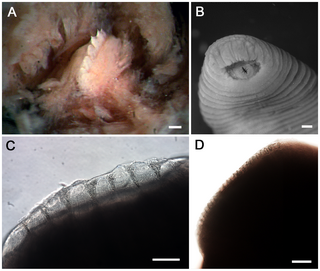
Praobdellidae is a family of hematophagous leeches which live on the mucous membranes of mammals and sometimes invertebrates. These are internal parasites that enter the body through natural orifices, and cause hirudiniases.
Haemopidae is a family of leeches belonging to the order Arhynchobdellida.

Cylicobdellidae is a family of leeches belonging to the order Arhynchobdellida.
Lestonia is a genus of true bugs belonging to the monotypic family Lestoniidae.
Macrobdellidae is a family of Nearctic leeches belonging to the order Arhynchobdellida.
Philobdella is a genus of Nearctic leeches belonging to the family Macrobdellidae.
Hirudinaria is a genus of large Asian leeches belonging to the family Cylicobdellidae; previously it was placed in the Hirudinidae. It includes species such as H. manillensis that may be called "Asian medicinal leeches", but together with the genus Poecilobdella, they are also described as Asian buffalo leeches.













